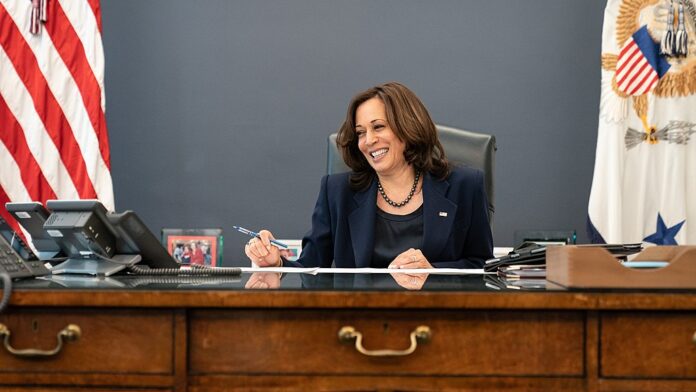In a definitive shift, Vice President Kamala Harris declares she will not ban fracking if elected president, marking a reversal from her earlier opposition and addressing criticisms from Donald Trump
Vice President Kamala Harris has announced that she will not ban fracking if elected president, marking a significant shift from her previous stance. During an interview with CNN on August 30, 2024, Harris unequivocally stated, “As vice president, I did not ban fracking. As president, I will not ban fracking.”
This statement comes amid ongoing debates and criticism surrounding her position on hydraulic fracturing, a method widely used to extract oil and natural gas from underground rock formations. Harris’ previous opposition to fracking had been a point of contention, particularly as the technique has become central to the production of most U.S. oil and gas.
Embed from Getty ImagesThe vice president’s comments represent her most definitive stance on the issue since becoming the Democratic nominee. Her decision to address the matter head-on follows persistent attacks from former President Donald Trump, who has criticized her position in the context of Pennsylvania’s rich natural gas resources. Pennsylvania, a key battleground state, is heavily reliant on fracking for its economic output, and Trump has leveraged this issue to challenge Harris and her campaign.
In her CNN interview, Harris aimed to balance environmental concerns with economic realities. “I recognize the importance of transitioning to cleaner energy sources, but I also understand the need to address the current energy demands and economic impacts of fracking,” she explained. Her position reflects a pragmatic approach, acknowledging both the necessity of maintaining energy production and the broader goals of environmental protection.
The decision to maintain fracking aligns with Harris’ broader energy policy, which seeks to transition towards renewable energy while managing the immediate needs of the energy sector. This approach seeks to mitigate potential economic disruptions while pursuing long-term environmental goals.
Harris’ stance contrasts with the more aggressive anti-fracking positions taken by some of her Democratic rivals during the primary season. Her reversal aims to appeal to a wider audience, including moderate voters and those in energy-dependent regions who might be concerned about the economic implications of a sudden ban.
The vice president’s position also highlights the complexities of energy policy in the U.S., where economic and environmental considerations often collide. By choosing not to ban fracking, Harris is signaling a willingness to engage with the practicalities of energy production while still pursuing broader climate goals.
Analysis
Political: Kamala Harris’ decision to rule out a fracking ban represents a strategic shift aimed at navigating complex political terrain. Facing criticism from Donald Trump and pressure from both environmental advocates and energy-dependent regions, Harris’ stance seeks to balance these conflicting interests. Her approach is intended to secure support from moderate voters and energy-producing states, particularly in key battlegrounds like Pennsylvania. By addressing the issue directly, Harris aims to mitigate potential electoral fallout and demonstrate a nuanced understanding of energy policy.
Social: Socially, Harris’ reversal on fracking reflects broader societal debates about energy production and environmental sustainability. Fracking has been a controversial topic, with strong opinions on both sides. The decision to continue allowing fracking acknowledges the economic dependence of many communities on this method, while also attempting to address environmental concerns through other policy measures. Harris’ stance highlights the challenge of balancing immediate economic needs with long-term environmental goals, a dilemma faced by many policymakers.
Racial: The racial dimension of Harris’ policy shift is not immediately apparent in the context of fracking. However, the broader implications of energy policy often intersect with issues of racial equity. Communities of color, particularly those in energy-dependent regions, may be disproportionately affected by environmental policies and economic shifts. Harris’ decision to continue fracking may have varied impacts on these communities, depending on how energy policy evolves and how the benefits and drawbacks are distributed.
Gender: Harris’ position on fracking also carries gender implications, as she is the first female Vice President and a prominent figure in the Democratic Party. Her decision to maintain a pragmatic approach to fracking reflects a broader trend of female leaders navigating complex policy issues. While gender may not be the central factor in this specific policy, Harris’ leadership style and decisions are often scrutinized through the lens of her role as a pioneering female political figure.
Economic: Economically, Harris’ stance on fracking is a significant factor in energy policy. Fracking is crucial to the U.S. energy sector, providing substantial economic benefits to regions that rely on it. By opting not to ban fracking, Harris addresses concerns about economic stability and energy production. This decision aims to avoid disrupting communities and industries dependent on fracking while still pursuing broader energy and environmental goals. The balance between supporting current economic interests and transitioning to cleaner energy sources is a central challenge in her policy approach.
